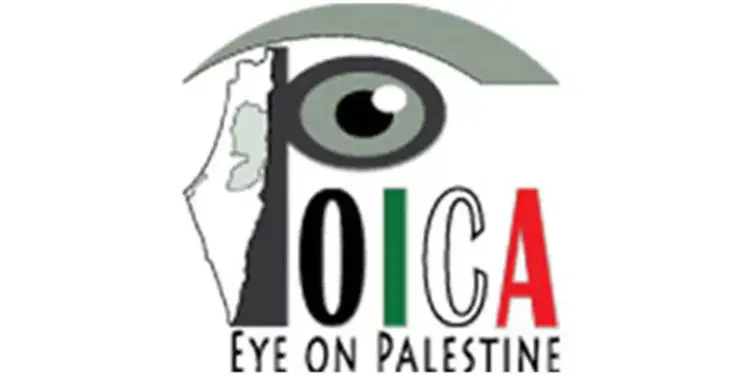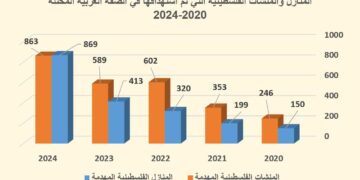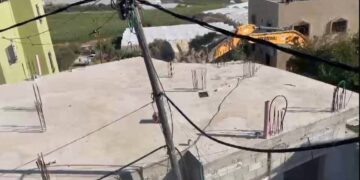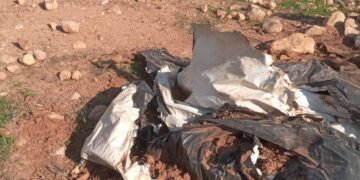Violation: demolishing 6 cisterns.
Date: June 6, 2012.
Perpetrators: the Israeli Occupation Army.
Victims: 80 Palestinian families.
Details:
Since the Israeli occupation of the West Bank in 1967, capturing natural resources, especially water sources, have been a main element in their agenda. The Israelis imposed a number of policies and regulations to prevent the Palestinians from gaining access to the 3 major aquariums in the West Bank and deny their right in them.
On June 6, 2012, an Israeli force accompanied by two dozers broke into the villages of Abu Da’if and Beit Qad and demolished 6 water cisterns on the pretext of unlicensed construction despite the fact that the cisterns are located in area classified ‘B’ according to Oslo Accords, meaning that it is under the Palestinian Authority administrative control.
Table: inflicted damage:
Owner |
Benefiting families |
Victims |
Location |
Covered area |
Abdul Men’im Daraghma |
13 |
78 |
5 years old, Abu Da’if |
20 dunums |
Abdul Nasser Daraghma |
11 |
81 |
Abu Da’if |
20 dunums |
Mahmoud Hithnawi |
14 |
98 |
Abu Da’if |
55 dunums |
Ahmad al Qadi |
15 |
105 |
Beit Qad |
6 dunums and water for 400 of cattle |
Mahmoud Sharif |
16 |
112 |
Abu Da’if |
20 dunums |
Isam Yasin |
11 |
70 |
Beit Qad |
6 dunums, 35000 chickens |
Total |
80 |
554 |
|
127 dunums, 400 cattle, and 35000 chickens |
Demolishing water cisterns has added to the economical burdens of the population of the target villages. The price of drinking water has tripled as a result (18 ILS per m3). The Israelis have been trying to limit the Palestinians’ access to water in the area by drying cisterns out and destroying wells despite the fact that the overall pumping rate of these wells and cisterns is quite low compared with the need of the villagers.
Abu Da’if – an overview:
It is located 7 km to the south east of Jenin. Its total area is 12898 dunums including 1919 dunums of trees, 4386 dunums planted with grains, 2136 dunums of olive trees and the rest are barren lands. It is inhabited by 7500 people who depend mainly on agriculture in their living.













